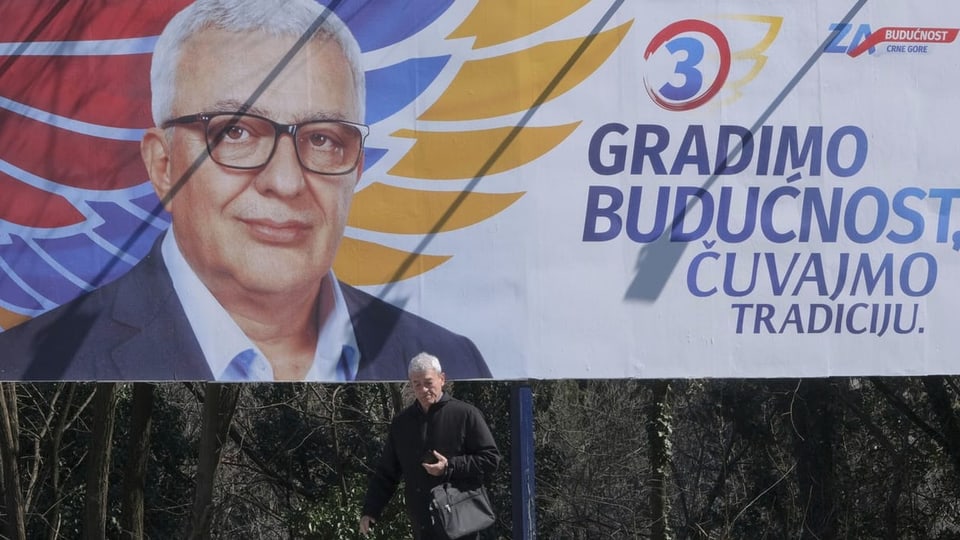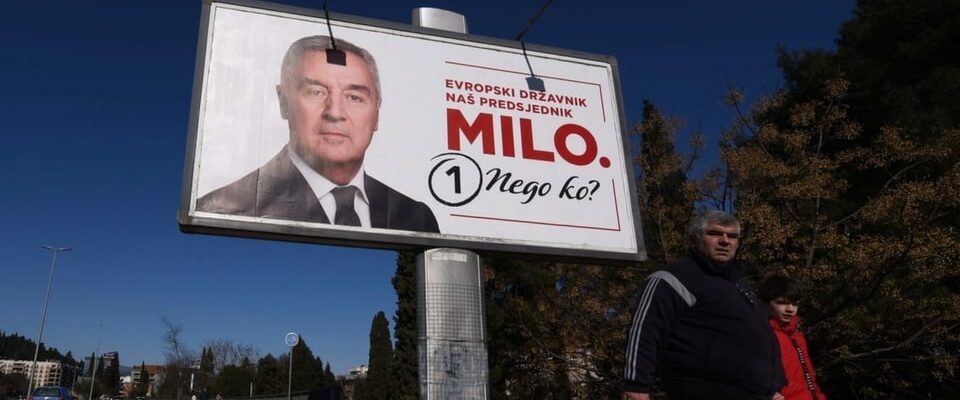Contents
The incumbent President Milo Djukanovic represents NATO and the EU. But what does the population want?
For more than 30 years, Milo Djukanovic, the current President, has held various positions at the head of the small country on the Adriatic Sea. But he knows that he cannot afford another election defeat. In the last parliamentary elections almost three years ago, his party lost power for the first time.
Since then, as President, he has faced a government that is primarily directed against him. Two governments have failed in two years, the last one last September. Since then, the quarreling parties have not been able to agree on a new government.
Djukanovic is challenged by six candidates
The government crisis is shaping the presidential election campaign in various ways. The parties wanted to position themselves for an upcoming reorganization, says Ana Nenezic, managing director of the think tank CeMi, a political observatory in Podgorica. This is the only way to explain that six other candidates are challenging Djukanovic. “The candidates want to use the media attention to convey their positions to the citizens – in the knowledge that elections are coming soon.”
Legend:
Pro-Western or anti-Western: This is the question at stake in the elections in Montenegro on Sunday.
Keystone/EPO/BORIS PEJOVIC
Because of the political blockade, everyone is expecting early elections. Because that’s what gives the elections on Sunday their real explosiveness. Although the office of President has more ceremonial functions, it is a kind of directional choice.
The country is at a crossroads, says Jakov Devcic from the Konrad Adenauer Foundation in Belgrade: “Accordingly, a directional decision will be made on Sunday as to whether Montenegro will continue towards the EU and stick to NATO membership or whether it will go a different way becomes.”
The country is in a deep political and institutional crisis.
Under Djukanovic, the country joined NATO and made its way to the EU. According to Devcic, the country strayed from this course under the last governments. And the political standstill has led to a polarization of society. “The country is in a deep political and institutional crisis, and this is also reflected in everyday life,” says Devcic.
Serbia supports parties with money
That means: You are for or against Djukanovic, and thus often pro-EU or anti-EU. These dividing lines partly coincide with those of national identity, between those who identify as Montenegrin or Serbian.

Legend:
Andrija Mandic is one of Milo Djukanovic’s opponents.
Keystone/AP Photo/Risto Bozovic
So when Djukanovic warns of outside influence in his election campaign clips and presents himself as the only European candidate, he is positioning himself against the pro-Serbian forces. They want to turn away from Europe and move closer to Serbia. They received direct support from Belgrade, says Ana Nenezic: “Certain parties are supported directly with Serbian money.” Serbia is also trying to influence the neighboring country through the Serbian Orthodox Church.
If there were a second ballot, Djukanovic would present himself as the protector of Montenegrin independence, while the Serbian candidate Mandic advocated rapprochement with Serbia.
Should there be a duel between Djukanovic and the pro-Serbian candidate in the second ballot, the polarization could worsen, according to Nenezic: “Then Djukanovic would present himself as the protector of Montenegrin independence and advocate a western orientation, while the Serbian candidate Mandic for a rapprochement with Serbia. » Whether it will come to that is an open question. The only thing that seems foreseeable is that there will probably be a second ballot, for the first time ever.
